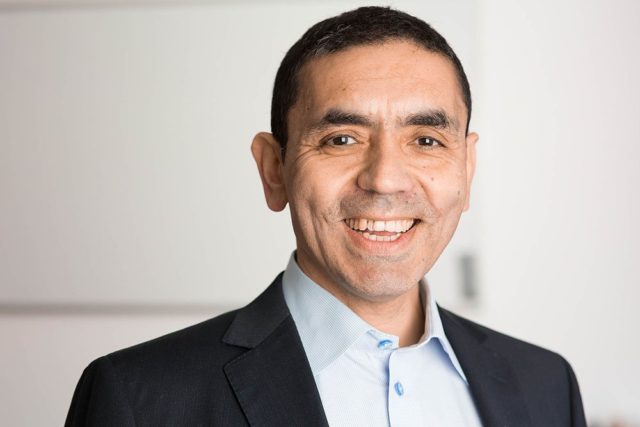
Germany’s BioNTech has already risen to international prominence thanks to its Pfizer-partnered COVID-19 vaccine. Not content to rest on its laurels, the mRNA specialist has lined up a deal for its first U.S. factory as it looks to make a big splash in cell therapy.
BioNTech is laying out a one-time, undisclosed sum to buy a cell therapy R&D platform and clinical manufacturing plant in Gaithersburg, Maryland, from Gilead Sciences’ Kite Pharma. The sale, expected to close by the end of the month, will add another pillar to BioNTech’s cell therapy production network next to its Idar-Oberstein, Germany, plant.
BioNTech will use the Kite plant to bolster supply for its U.S. clinical trials, the company said in a release.
Best-known for its COVID-19 vaccine Comirnaty, BioNTech is also working on a pipeline of novel cell therapies, including candidates based on its CAR-T cell amplifying mRNA vaccine approach, dubbed CARVac, and its recently-acquired NEOSTIM platform. The biotech will also be diving into development on an individualized neoantigen T cell receptor (TCR) program it’s picking up in the Kite deal.
Despite the company’s status as a prominent coronavirus vaccine manufacturer, individualized cancer treatments are at the “core” of BioNTech’s work, CEO Ugur Sahin said in a statement. The Kite buy should hasten those clinical efforts stateside and help secure BioNTech a spot at the front of the red-hot cell therapy field, he added.
RELATED: With cell and gene therapy boom coming, experts at Novartis, Kite trumpet need for capacity
BioNTech will extend job offers to all 50 Kite staffers at the site, a spokesperson said in an emailed statement. BioNTech plans to make additional investments and increase its headcount at the Maryland plant, though it kept most of the fine details close to the vest.
Kite’s commercial CAR T-cell therapy plant in Frederick, Maryland, isn’t part of the sale, the companies noted.
For its part, Kite is busy marketing its approved CAR T meds Tecartus and Yescarta, which are used to treat mantle cell lymphoma and follicular lymphoma, respectively. The company aims to grow its cell therapy base by expanding globally and broadening the labels for its existing treatments, Christie Shaw, chief executive at Kite, said in a statement.
Also under the deal, BioNTech is getting its hands on Kite’s solid tumor neoantigen T cell receptor R&D platform. TCR therapy redirects a patient’s immune system to recognize and target tumors, the company explained. Unlike CARs, which recognize antigens on the surface of cells, TCR therapies engineer a person’s individual T cells to express TCRs that recognize peptide fragments from antigens both inside and outside the cell. This could make TCR therapy a promising candidate to treat solid tumors, unlike the blood cancers that are the chief domain of CAR-Ts.
RELATED: Gilead’s Kite matches Bristol Myers with Yescarta CAR-T win in earlier lymphoma
BioNTech already has two individualized neoantigen-targeting programs in its pipeline, which it bolstered with its $67 million Neon Therapeutics buyout last year. Those are BNT122, in phase 1 testing for locally advanced or metastatic solid tumors and phase 2 studies with checkpoint inhibitors for first-line melanoma, plus BNT221, which the biotech is developing against metastatic melanoma.
These days, BioNTech’s name is largely synonymous with its COVID-19 vaccine. It ranks among several biotechs, such as Moderna and Novavax, that have seen their fortunes soar thanks to pandemic response efforts.
Less than two years after going public, the company is eyeing COVID-19 vaccine sales of €12.4 billion ($15 billion) in 2021, Sahin said in May. Armed with a hefty chunk of pandemic cash, BioNTech’s goal is to build a “21st century immunotherapy powerhouse,” he said at the time.






